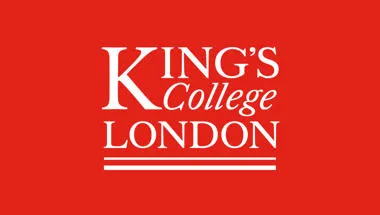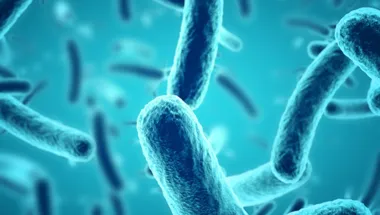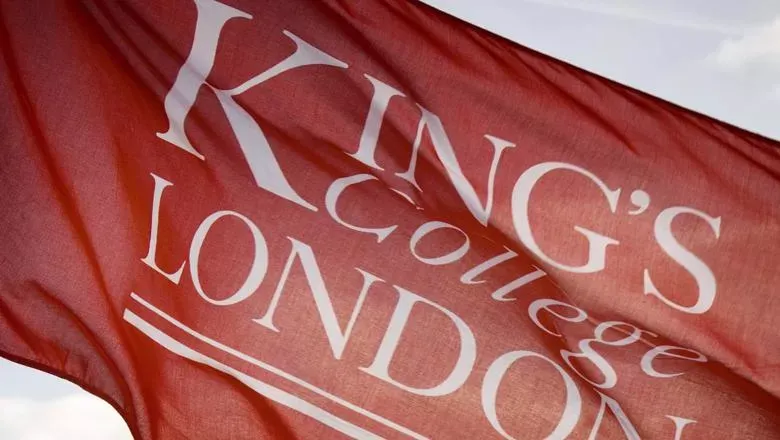Dr David Moyes
Reader in Host-Microbiome Interactions
Research interests
- Host-Microbiome Interactions
Biography
Dr David Moyes is a Reader in Host-Microbiome in the Centre for Host-Microbiome Interactions.
Throughout his career, he has been involved in investigating host-microbe interactions and the role of both microbe and host innate immune responses in these interactions.
He gained his PhD from Harefield Hospital, Imperial College London, before working at the Kennedy Institute of Rheumatology investigating the link between microbes and rheumatoid arthritis.
At King’s College, he was part of a team that identified the central mechanisms by which epithelial cells discriminate between commensal (harmless) and invasive (disease-causing) forms of Candida albicans. This work lead eventually to the discovery of the novel Candidalysin toxin and its role in both disease and protection at mucosal surfaces.
His interests have evolved to investigate the role of the microbiome in causing disease. The Moyes lab studies the interactions between the human host and the microbiota that reside at the different mucosal surfaces, including bacteria, fungi and viruses. They are investigating whether changes in microbial communities associated with disease are a symptom of the disease, or whether they play a role in driving the disease process.
Current projects include investigating whether skin-associated microbes can drive or suppress conditions such as atopic dermatitis and psoriasis, whether the common oral fungus C. albicans drives cancer progression and how it does this, and the role of early recognition events that microbes trigger in epithelial cells – whether these responses go on to improve innate immune responses to pathogens.
The Moyes Group are also investigating the changes in antimicrobial resistance genes associated with the oral and gut microbiome (resistome), and their transmission within the community (mobilome). As part of this they are looking at how these resistome and moblome profiles change between different countries and health states.
Research

Cariology & Operative Dentistry
Cariology & MI Operative Dentistry Research Programme

Functional Microbiome Group / Moyes Group
Investigating the functional interactions between microbes/microbial communities and mucosal surfaces.

MIMSA - Oral Microbiome & Mucosal Immunity in COVID-19 disease
Examining the role of 'mucosal immunity' and the 'oral microbiome' in COVID severity, and the differences seen between South Asian & white ethnic groups.
Project status: Starting

Centre for Host-Microbiome Interactions
Millions of microorganisms live in and on our bodies forming microbiomes on different surfaces. Researchers in the Centre for Host Microbiome Interactions study our relationship with these bacteria and fungi in health or in oral and systemic diseases such as periodontitis, candidiasis, oral cancer and Alzheimer’s disease.

The Multiscale Biofilm Research Hub (MBRH)
The Multiscale Biofilm Research Hub (MBRH) has been established to promote interdisciplinary interactions and focus microbial biofilm related research at King’s.

Biofilms at mucosal surfaces
The study of dental caries, periodontitis, vaginal dysbiosis, chronic inflammatory diseases & infections within the oral cavity, intestinal tract & lungs
Project status: Ongoing

Dermatological and non-mucosal biofilms
We are studying the role of biofilms in dermatitis, chronic pain, diabetic ulcers, nail infections and chronic wounds.
Project status: Ongoing

Antimicrobial resistance and biofilm therapeutics
Work involves understanding how biofilms contribute to antimicrobial resistance and the creation of new anti-biofilm therapeutics.
Project status: Ongoing

Microbes in Health & Disease
The Microbes in Health & Diseases Research Interest Group aims to foster collaboration across departments and faculties at KCL to explore the multifaceted role microbes play in health and disease.
News
Academic Promotions 2024
Many congratulations to the following members of the Faculty of Dentistry, Oral & Craniofacial Sciences who have been awarded Academic Promotions during the...

Academic Promotions
Congratulations to the following members of the Faculty of Dentistry, Oral & Craniofacial Sciences who were awarded academic promotions.

Analysing the differences in antibiotic resistance between the gut and mouth microbiome
In a paper published today in Nature Communications, academics from King’s College London have taken the first step to examine the antimicrobial resistance...

Research

Cariology & Operative Dentistry
Cariology & MI Operative Dentistry Research Programme

Functional Microbiome Group / Moyes Group
Investigating the functional interactions between microbes/microbial communities and mucosal surfaces.

MIMSA - Oral Microbiome & Mucosal Immunity in COVID-19 disease
Examining the role of 'mucosal immunity' and the 'oral microbiome' in COVID severity, and the differences seen between South Asian & white ethnic groups.
Project status: Starting

Centre for Host-Microbiome Interactions
Millions of microorganisms live in and on our bodies forming microbiomes on different surfaces. Researchers in the Centre for Host Microbiome Interactions study our relationship with these bacteria and fungi in health or in oral and systemic diseases such as periodontitis, candidiasis, oral cancer and Alzheimer’s disease.

The Multiscale Biofilm Research Hub (MBRH)
The Multiscale Biofilm Research Hub (MBRH) has been established to promote interdisciplinary interactions and focus microbial biofilm related research at King’s.

Biofilms at mucosal surfaces
The study of dental caries, periodontitis, vaginal dysbiosis, chronic inflammatory diseases & infections within the oral cavity, intestinal tract & lungs
Project status: Ongoing

Dermatological and non-mucosal biofilms
We are studying the role of biofilms in dermatitis, chronic pain, diabetic ulcers, nail infections and chronic wounds.
Project status: Ongoing

Antimicrobial resistance and biofilm therapeutics
Work involves understanding how biofilms contribute to antimicrobial resistance and the creation of new anti-biofilm therapeutics.
Project status: Ongoing

Microbes in Health & Disease
The Microbes in Health & Diseases Research Interest Group aims to foster collaboration across departments and faculties at KCL to explore the multifaceted role microbes play in health and disease.
News
Academic Promotions 2024
Many congratulations to the following members of the Faculty of Dentistry, Oral & Craniofacial Sciences who have been awarded Academic Promotions during the...

Academic Promotions
Congratulations to the following members of the Faculty of Dentistry, Oral & Craniofacial Sciences who were awarded academic promotions.

Analysing the differences in antibiotic resistance between the gut and mouth microbiome
In a paper published today in Nature Communications, academics from King’s College London have taken the first step to examine the antimicrobial resistance...

